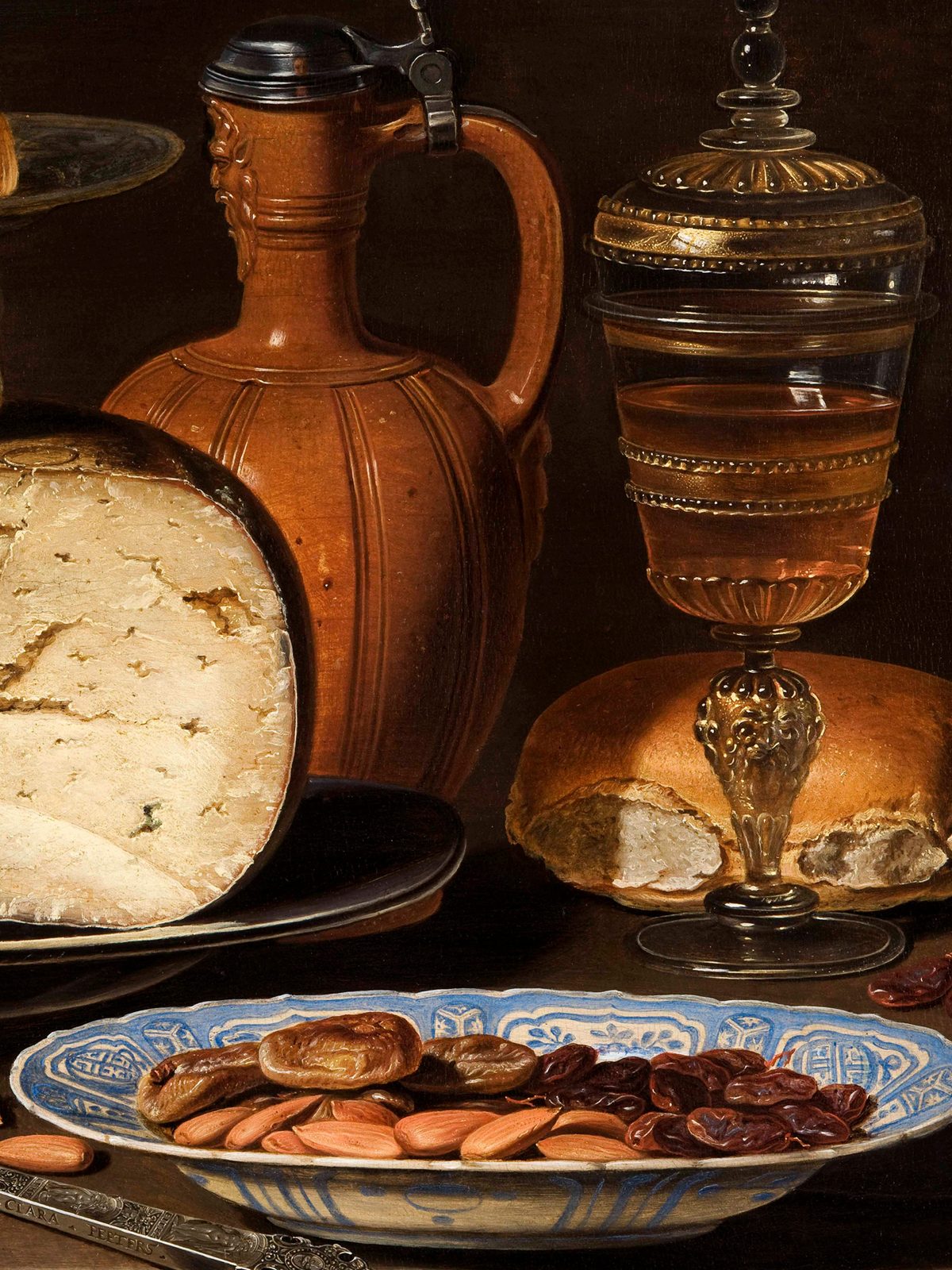You and your ancestor from 1,000 years ago have almost nothing in common. Your clothes are different. Your worship rituals are different. Your thoughts about the opposite sex are definitely different. Almost the only similarity is that both of you are driven to obtain food. In fact, one could say that civilization itself began in the quest for food. Epicure Jean-Anthelme Brillat-Savarin said it best: “Gastronomy governs the whole life of man.”
In this episode, Professor Ken Albala of the University of the Pacific puts the subject of food and its importance in history on the table. Ken has studied widely on the types of cuisine that would be featured at a Roman feast, a medieval banquet, or a Renaissance Italian civic celebration. He’s ground Italian flour to make the sort of bread one would eat in Pompeii. He’s made stewed rabbit in a homemade clay pot the way an Elizabethean peasant would. He hasn’t tried field-mouse-on-a-stick (a popular Roman delicacy) but probably not for lack of trying.
In this episode we discuss
- How Roman food reflected social rank, wealth, and sophistication
- The Middle Ages produced some of history’s most outlandish and theatrical presentations of food, such as gilded boars’ heads; “invented” creatures, mixing parts of different animals; and cooked peacocks spewing flames.
- The sophistication and complexity of Renaissance-era food culture in the writings of Platina, Ficino, and Messisbugo, and the extravagance of banquets at the court of Ferrara.
- The aesthetics of French 17th-century cookery, based in refinement and pureness of flavors and study four Gallic cookbooks that revolutionized culinary history.
- In the 21st century, the phenomenon of “molecular gastronomy”—technology-enhanced food creations designed to titillate and amaze the palate.
RESOURCES MENTIONED IN THIS EPISODE
Ken’s Great Courses Class: Food—A Cultural Culinary History
Apicius’s Cooking and Dining in Imperial Rome
Scents and Flavors: A Syrian Cookbook
Ken’s book The Lost Art of Real Cooking: Rediscovering the Pleasures of Traditional Food One Recipe at a Time
Ken’s book The Lost Arts of Hearth and Home: The Happy Luddite’s Guide to Domestic Self-Sufficiency
WOULD YOU LIKE FREE ACCESS TO THE GREAT COURSES PLUS FOR 30 DAYS?
You can do that immediately by signing up at www.thegreatcoursesplus.com/Unplugged
The Great Courses is the most comprehensive online learning site of its kind. With this video and audio streaming service you have unlimited access to learn from award-winning professors and experts about anything that interests you.
There’s over 8,500 different lectures across so many different subjects, including history, science, language…even hobbies like cooking and photography.
You can watch the videos on a TV, laptop, tablet or smartphone or stream the audio with The Great Course Plus and listen along as you’re going about your day!
Start your Free Month Now – you will love it!
Sign up at www.thegreatcoursesplus.com/Unplugged
Cite This Article
"#140: Why Food Tells Us More About a Culture Than Anything Else—Ken Albala" History on the Net© 2000-2024, Salem Media.
April 16, 2024 <https://www.historyonthenet.com/140-food-tells-us-culture-anything-else-ken-albala>
More Citation Information.






